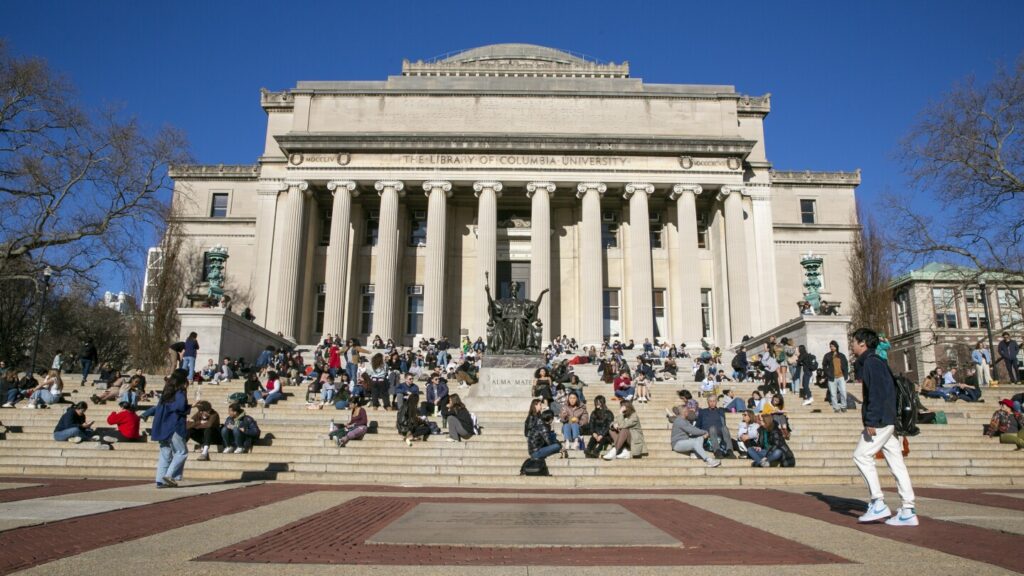A deal between Columbia University and the Trump administration calls for the Ivy League school to pay more than $220 million to resolve multiple federal investigations into alleged violations of federal antidiscrimination laws.
The agreement announced Wednesday clears the way for the school to keep billions of dollars in federal research money, including more than $400 million in grants canceled earlier this year.
In return, the deal calls for a number of reforms in areas such as admissions, campus protests policies and its curriculum, including a number of changes the school agreed to previously in March.
It is a document President Donald Trump’s administration is calling a road map for settlements with other colleges accused of not doing enough to address campus antisemitism. Columbia University’s acting president, Claire Shipman, said it protects the school’s values and autonomy.
Here’s what’s in the settlement:
Financial payout
The university will pay the federal government $200 million over three years. It will also pay $21 million to settle alleged civil rights violations against Jewish employees that occurred following the Oct. 7, 2023, Hamas attack on Israel.
A pledge to end diversity programs
The university agreed to end programs “that promote unlawful efforts to achieve race-based outcomes, quotes, diversity targets or similar efforts.” Columbia, as part of the agreement, must also issue regular reports to an independent monitor assuring that its programs “do not promote unlawful DEI goals.”
The agreement pushes Columbia to limit the consideration of race even beyond the Supreme Court’s 2023 decision ending affirmative action. That decision left open the possibility that universities could consider an applicant’s discussion of how their race affected their life, including in college application essays.
The agreement says: “Columbia may not use personal statements, diversity narratives, or any applicant reference to racial identity as a means to introduce or justify discrimination.”
Faculty and curriculum changes
Columbia agreed to review its Middle East curriculum and appoint new faculty to its Institute for Israel and Jewish Studies who will “contribute to a robust and intellectually diverse academic environment.”
To further support Jewish students on campus, the agreement calls for a new administrator to serve as a liaison on antisemitism issues.
Reporting on international students
Columbia University agreed to new vetting for prospective international students. The agreement calls for introducing “questions designed to elicit their reasons for wishing to study in the United States” and establishes processes to make sure all students are committed to “civil discourse.”
The university also promised to provide the government with information, upon request, of disciplinary actions involving student-visa holders resulting in expulsions or suspensions.
“In several instances, the agreement codifies other practices or policies already in existence, or reviews already underway. We must always comply with government regulations regarding the international student visa program, for example,” Shipman said.
The agreement says Columbia also will “examine its business model and take steps to decrease financial dependence on international student enrollment.” International students make up about 40% of the enrollment at Columbia.
Abiding Trump’s interpretation on sex discrimination
The agreement requires full compliance with the administration’s interpretation of Title IX, the federal law barring sex discrimination in education. Trump officials have used the law to force the removal of transgender athletes from women’s sports.
Campus protest policies
The deal calls for Columbia to abide restrictions it agreed to on campus protests, including a ban on face coverings used to conceal demonstrators’ identity. It says protests inside academic buildings are not acceptable under the university’s code of conduct.
___
The Associated Press’ education coverage receives financial support from multiple private foundations. AP is solely responsible for all content. Find AP’s standards for working with philanthropies, a list of supporters and funded coverage areas at AP.org.

